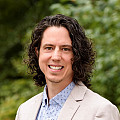- <a href="/live/image/gid/91/width/650/101109_cherry_blossom_windows.jpg" class="lw_preview_image lw_disable_preview" tabindex="-1"><picture class="lw_image lw_image101109"><source media="(max-width: 500px)" type="image/webp" srcset="/live/image/scale/2x/gid/91/width/500/height/479/crop/1/101109_cherry_blossom_windows.rev.1698181908.webp 2x, /live/image/scale/3x/gid/91/width/500/height/479/crop/1/101109_cherry_blossom_windows.rev.1698181908.webp 3x" data-origin="responsive"/><source media="(max-width: 500px)" type="image/jpeg" srcset="/live/image/scale/2x/gid/91/width/500/height/479/crop/1/101109_cherry_blossom_windows.rev.1698181908.jpg 2x, /live/image/scale/3x/gid/91/width/500/height/479/crop/1/101109_cherry_blossom_windows.rev.1698181908.jpg 3x" data-origin="responsive"/><source media="(min-width: 501px)" type="image/webp" srcset="/live/image/scale/2x/gid/91/width/720/height/690/crop/1/101109_cherry_blossom_windows.rev.1698181908.webp 2x, /live/image/scale/3x/gid/91/width/720/height/690/crop/1/101109_cherry_blossom_windows.rev.1698181908.webp 3x" data-origin="responsive"/><source media="(min-width: 501px)" type="image/jpeg" srcset="/live/image/scale/2x/gid/91/width/720/height/690/crop/1/101109_cherry_blossom_windows.rev.1698181908.jpg 2x, /live/image/scale/3x/gid/91/width/720/height/690/crop/1/101109_cherry_blossom_windows.rev.1698181908.jpg 3x" data-origin="responsive"/><img src="/live/image/gid/91/width/720/height/690/crop/1/101109_cherry_blossom_windows.rev.1698181908.jpg" alt="" width="720" height="690" srcset="/live/image/scale/2x/gid/91/width/720/height/690/crop/1/101109_cherry_blossom_windows.rev.1698181908.jpg 2x" data-max-w="2500" data-max-h="2000" loading="lazy" data-optimized="true"/></picture></a> <div class="hero-split_image_caption collapsable-caption"></div>
Eating Disorders Treatment Certificate
The Eating Disorders Certificate program at Lewis & Clark Graduate School is one of the few graduate programs in the country devoted to the topic, and is the only program in the Pacific Northwest. Our program takes an inclusive, weight-neutral, Health At Every Size approach that challenges harmful systemic biases directed at larger bodies.
Eating disorders are one of the largest undiagnosed and untreated problems facing mental health and medical practitioners today, yet training specific to eating disorders is extremely rare.
Given lifetime prevalence rates of eating disorders, disordered eating, and associated co-occurring disorders, it is inevitable that professional mental health practitioners will be faced with clients presenting with these problems.
Certificate at Glance
-
Nine courses, 9 semester hours, fully online
-
Offered for degree-applicable or continuing education credit
-
Small, interactive classes led by expert practitioners
This certificate provides the comprehensive knowledge base required to work professionally with clients experiencing disordered eating. The program is appropriate for graduate students completing master’s degrees in counseling or therapy, as well as mental health and addictions practitioners, nutritionists, or medical personnel working in the field.
Course Descriptions
Coursework may be taken in any sequence, beginning with any course. The below sequence and schedule are subject to change.
Fall
Eating Disorders in Transgender and Gender Expansive Populations (CECP 841 / CPED TBA)
This course covers the interdisciplinary field of scholarship exploring best practices in working with transgender and gender diverse clients (TGDCs) experiencing eating disorders and/or disordered eating (EDs/DE).
Historically, eating disorder treatments were modeled after white, cisgender, neurotypical populations, specifically girls/women that often do not reflect the experience of BIPOC and/or TGD, neurodivergent populations. Current treatment for EDs still reflects this research with very limited research to date on specifically treatment tailored to transgender populations with EDs.
As such, TGD youth and adults can have their experiences invisibilized in inpatient and outpatient treatment settings. This is further eye-opening when research shows that the prevalence of EDs/DE is much higher in TGD communities compared to cisgender people. This makes understanding the specific risk factors and different trajectories for developing EDs/DE in TGD communities, as well as understanding barriers to gender affirming and inclusive treatment for TGD individuals vital in working with these populations.
How can we as clinicians support TGDCs in addressing EDs/DE when EDs/DE may feel like the solution to the problem rather than the problem itself?
This course will also include an introduction to understanding the intersections of TGDCs, neurodivergence and EDs/DE. Ultimately, this course will explore the prevalence of EDs/DE in transgender communities, address gaps in current models based on cisgender populations, and provide TGD and neurodivergent affirming considerations that reduce barriers to care, and increase and provide ethical, competent, and gender-affirming care for all gender diverse clients.
Treatment of Eating Disorders (CECP 834 / CPED 575)
This course provides an in-depth overview of the current evidence-based treatments for adults with eating disorders, including Cognitive Behavioral Therapy, Dialectical Behavior Therapy, Motivational Interviewing, Acceptance and Commitment Therapy and more.
Participants will learn assessment for determining what level of care might be appropriate for a particular client, as well as ways to facilitate both a step up or adjustment down in a patients level of care—while maintaining progress.
Participants will learn counseling interventions and treatment strategies for common symptoms of eating disorders and how to work well with other providers as part of a larger treatment team. Involving friends and family members as appropriate will also be addressed, as well as treating common co-morbidities.
Introduction to Eating Disorders (CECP 833 / CPED 572)
This course explores the history, etiology, prevalence, possible causes, early recognition, treatment, and prevention of anorexia nervosa, binge eating disorder, and related disordered eating behaviors.
Information will be presented from a multidimensional approach, reviewing the biological, sociocultural, psychological, behavioral, nutritional, and medical modalities of treatment.
Topics will also include treatment options, community resources, and insurance coverage of eating disorders.
Spring
Mind Body Connections in the Treatment of Eating Disorders (CECP 840 / CPED 580)
This course will explore the use of somatic approaches—including yoga, somatic therapies, and mindfulness—in the treatment of eating disorders. Participants will explore improving body image, embodied experience, introspective awareness, and the ability to identify, feel, and regulate emotions - all critical components in the treatment of eating disorders and negative body image.
Participants will also look at eating disordered behavior, and the relationship of those impacted through their bodies with an interpersonal neurobiology lens.
Nutrition (CECP 836 / CPED 577)
This course will include an overview of nutrition principles, nutrition therapy, and the role of the dietitian/nutritionist on the treatment team, and will be taught from a Health at Every Size (HAES) perspective.
Participants will learn principles of nutritional rehabilitation for malnourished and underweight clients; structured eating and other interventions for all eating disordered clients will be explored. Functions of Anorexia Nervosa and other eating disorders will be discussed from a nutrition perspective, and the cycle of restriction and bingeing will be discussed with Bulimia Nervosa and Binge Eating Disorder.
Participants will also explore the principles of intuitive eating and mindful eating, and when these approaches are useful. Orthorexia will be covered in the context of our obsessive diet culture, along with ways to challenge these beliefs.
Participants will also learn strategies for working with families, particularly those of teens. Participants will examine their own relationships with food and explore strategies for making positive changes, and will learn how to establish professional boundaries around food issues with clients. Material will cover the collaboration between the dietitian/nutritionist and therapist, including case examples to illustrate and differentiate roles of therapist and nutritionist.
Fat Studies & Health at Every Size (CECP 835 / CPED 573)
This course explores the interdisciplinary field of scholarship in Fat Studies that aims to debunk weight-centric misconceptions and countering mainstream narratives.
Participants will examine fat bias, fat shame and weight-based oppression as a social justice issue that intersects with other systems of oppression.
This course includes an introduction to the paradigm of Health At Every Size (HAES), a weight-neutral approach to health promotion that emphasizes size diversity, intuitive eating, and joyful movement. HAES is also an important paradigm in working with people who experience disordered eating.
Summer
Treatment of Negative Body Image (CECP 838 / CPED 576)
This course will offer an in-depth overview of the causal and maintenance factors involved in the development of clinically significant negative body image.
Participants will explore how it presents in different populations and over the lifespan, as well as effective approaches to treatment—whether the negative body image concern stems from an eating disorder or body dysmophic disorder.
Evidence-based treatment strategies to help clients make peace with their bodies will also be discussed.
Body Politics (CECP 837 / CPED 574)
As clinicians, we need to be prepared to help clients deconstruct how their bodies have been storied.
This includes raising awareness of, and challenging, the impact of societal and relational power dynamics. These dynamics impact not only our inner dialog, but the everyday realities of our lives.
This course explores how we evaluate our bodies through the lens of “unidentified others,” as well as the lived experience and consequences of looks, privilege and discrimination.
Participants will consider liberation-based counseling practices to counter the objectification, commodification, power and gendering of bodies in late capitalist societies.
The focus of this course is to raise awareness of body politics in the clinical practice and creating opportunities for change through individual and relational wellbeing.
Family Therapy in the Treatment of Eating Disorders (CECP 878 / CPED 578)
This course will cover the topic of disordered eating and eating disorders in children.
Family therapy treatment strategies including the Maudsley method and other approaches will be discussed.
Additional focus will be placed on ways to foster healthy eating and positive lifestyle choices in families.
Faculty & Instructors
Certificate Program FAQs
Yes. We welcome students seeking to take individual courses within the certificate program. Application/admission to the program is still required. Fee waivers are available.
View application and prerequisite requirements for more details.
Each course is offered for one semester hour of degree-applicable or continuing education (non degree-applicable) credit. All courses in the certificate program can be applied toward graduate degrees if they are taken for degree-applicable credit. Continuing education credit is available for anyone not working toward a degree.
Current Lewis & Clark students enrolled in master’s degree programs may be able to take courses required for the certificate as electives for their degree program, and should consult with an advisor to find out.
No. The certificate is only issued for students who have taken either:
- All courses for degree-applicable (DA) credit, or
- All courses for graduate-level continuing education (CE) credit
Students seeking to earn the certificate are not able to take courses at different credit levels (example: enrolling in 4 courses for DA credit and 4 for CE credit)
These are graduate level, credit bearing continuing education courses. Each course meets for 15 contact hours and there is additional coursework to be completed outside of instructional class time.
Example coursework may include selected readings or other media resources and writing a summarizing paper. The syllabus for each class will detail the evaluation criteria that must be met in order to pass the course.
Full participation in certificate classes includes the expectation that students will have their camera on in the virtual classroom.
Program Application & Admission
Application Process
Admission into the Eating Disorders Certificate program is handled on an ongoing basis.
All applicants will receive written notification of their acceptance, inclusion on a wait-list, or non-acceptance. Applicants accepted to the program will be sent registration information for their first course.
Wait-listed applicants will be notified if/when space becomes available.
Continuing Education Credit Applicants (individual classes, or full certificate)
Continuing education students have the option of taking individual or multiple courses within certificate program once they have formally applied and been admitted to the program. Fee waivers are available (contact gseadmit@lclark.edu for more information).
View application and requirements
View additional registration and policy information here
Tuition and Fees
Tuition is payable on a semester by semester basis and should accompany course registration. Please see the Tuition and Costs page for current Degree-Applicable and Continuing Education tuition rates.
Upcoming Certificate Coursework
Fat Studies & Health at Every Size (Online)
Saturday-Sunday, March 7-8, 2026, 9 a.m.-5:30 p.m.
Mind Body Connections in the Treatment of Eating Disorders (Online)
Friday-Sunday, March 13-15, 2026, 10 a.m.-4 p.m.
Nutrition (Online)
Saturdays, April 11, 18, and Sunday, April 19, 2026, 9 a.m.- 2:30 p.m.
Fat Studies & Health at Every Size (Online)
Saturday-Sunday, April 25-26, 2026, 9 a.m.-5:30 p.m.
Treatment of Negative Body Image (Online)
Fridays, June 5 & 12, 2026, 9 a.m.-5:30 p.m.
Body Politics (Online)
Saturday-Sunday, June 27-28, 2026, 9 a.m.-3:50 p.m.
Treatment of Negative Body Image (Online)
Fridays, July 10 & 17, 2026, 9 a.m.-5:30 p.m.
This site is not currently accepting form submissions due to scheduled maintenance. Please try again later.
Center for Community Engagement is located in South Chapel Annex on the Graduate Campus.
MSC: 85
email cce@lclark.edu
voice 503-768-6040
fax 503-768-6045
Director Matsya Siosal
Center for Community Engagement
Lewis & Clark
615 S. Palatine Hill Road
Portland OR 97219















